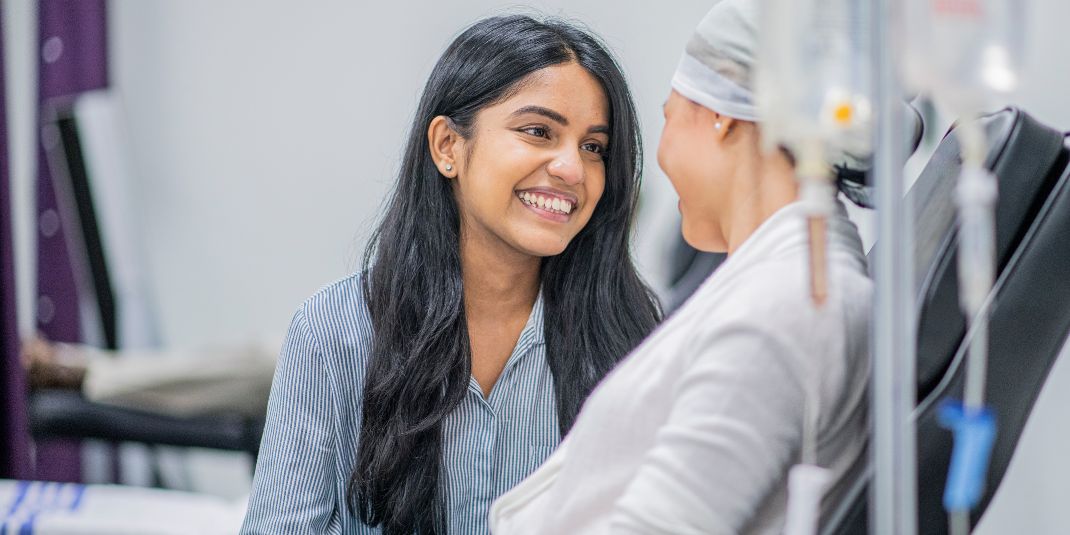Part 6 of our Bridging the Gap Series (Summary of the webinar session held in May 2024)
Welcome to another installment of the Bridging the Gap webinar series, your go-to place for the latest in cell and gene therapy. Presented by Azenta Life Sciences and the Emily Whitehead Foundation, this series is all about connecting the dots between groundbreaking science and real-world patient care.
This time, we dove into the topic “Shaping Tomorrow’s Standards of Care: Improving Patient Access to Advanced Therapies.” We had an exceptional lineup featuring Dr. Miguel Forte, President-elect of ISCT and CEO of Kiji Therapeutics. Dr. Forte’s impressive background includes an M.D. and Ph.D. in immunology and more than two decades in strategic management within the cell and gene therapy field.
Meet the Panel
The session kicked off with our dynamic co-hosts, Olga Bukatova from Azenta Life Sciences and Tom Whitehead from the Emily Whitehead Foundation. They were joined by our panelists: Albert Ribickas from Moffitt Cancer Center, Dr. Patrick Hanley from Children’s National Hospital, and George Eastwood, Executive Director of the Emily Whitehead Foundation.
What’s New at the Emily Whitehead Foundation?
Tom Whitehead brought some truly inspiring updates. First off, he talked about the exciting premiere of the new IMAX film “The Superhuman Body: World of Medical Marvels.” This film, narrated by none other than Matthew McConaughey, features Emily Whitehead’s story and aims to inspire middle schoolers to dive into STEM careers while providing hope to patients and their families worldwide. Imagine seeing your own journey, as part of a groundbreaking medical story, on the big screen!
Tom also shared his upcoming role in an FDA panel. He’s heading to Washington, D.C., to help tackle the roadblocks that patients face in accessing clinical trials. He opened up about his personal battle with melanoma, reminding us all why this fight is so personal and why advocacy is more important than ever.
The Main Event: Dr. Miguel Forte
Dr. Forte took center stage, sharing his journey from treating HIV patients to pioneering in cell and gene therapy. His commitment to improving patient access is evident in every word. “Access is not just about paying for the medication; it’s about ensuring patients receive it through a combination of knowledge, infrastructure, and regulatory support,” he emphasized.
Insights from the Panel
The discussion then shifted to our expert panel:
Albert Ribickas emphasized the need for a comprehensive approach, noting that having skilled professionals who can administer and monitor treatments is crucial.
Dr. Patrick Hanley zeroed in on the importance of tackling value and reimbursement challenges. He highlighted the bureaucratic hurdles that can delay access to life-saving treatments like CAR T-cell therapy, particularly for conditions like sickle cell disease and beta thalassemia.
George Eastwood stressed the necessity of integrating patient stories into the development and policy discussions of new therapies. The Emily Whitehead Foundation is all about amplifying these voices and making sure they’re heard loud and clear in every regulatory conversation.
Game-Changing Innovations and Decentralized Models
A hot topic was the role of technological innovations and decentralized manufacturing models in improving patient access. Both Dr. Forte and Dr. Hanley highlighted the promise of in vivo approaches and the use of induced pluripotent stem cells (iPSCs).
“We are on the brink of a revolution in how we deliver therapies,” Dr. Hanley remarked. “Innovations in automation and point-of-care manufacturing will make treatments more accessible and affordable.”
Dr. Forte echoed this, emphasizing the need for regulatory frameworks to keep pace with these rapid advancements. He pointed out that addressing patient access challenges requires a global perspective, with innovative approaches being developed in places like Brazil and India.
Key Takeaways
Here are the standout points from this enlightening conversation:
- Holistic Approach to Access: Improving patient access isn’t just about finances; it involves comprehensive knowledge, robust infrastructure, and supportive regulatory frameworks.
- Technological Breakthroughs: Advances in automation, in vivo approaches, and iPSCs are crucial for making therapies more accessible and affordable.
- Global Strategies: Addressing patient access challenges requires a global perspective, recognizing the unique needs and opportunities in different regions.
- Patient Advocacy: Incorporating patient stories and advocacy into policy and development discussions ensures that solutions remain patient centric.
- Regulatory Adaptation: Regulatory frameworks must evolve to facilitate the timely and equitable access to new cell and gene therapies.
Wrapping Up
The Bridging the Gap webinar series continues to be a vibrant platform for insightful discussions and collaborative efforts in cell and gene therapy. With the ISCT annual meeting on the horizon, we look forward to more groundbreaking advancements and innovations that will shape the future of patient care.
A huge thank you to Dr. Forte and our esteemed panelists for their dedication and insights. Stay tuned for our next session and keep joining us as we bridge the gaps in science, technology, and patient care.
Register to stay updated and watch the recording of this session.
Explore more in the Bridging the Gap Series
About the Guest
Dr. Miguel Forte, M.D., Ph.D

Miguel Forte, M.D., Ph.D., is a visionary leader shaping the landscape of cell and gene therapies. As the Chief Executive Officer at Kiji Therapeutics and a Professor at Lisbon University, Dr. Forte brings over two decades of expertise in operational and strategic management, revolutionizing the intersection of academia and industry. His groundbreaking work as the Founder and Managing Director of mC4Tx has propelled human medicinal product biotech companies forward, crafting innovative strategies for success.
Dr. Forte’s leadership extends globally as the incoming President-Elect of the International Society for Cell & Gene Therapy, where he champions the development of safe and effective treatments to transform patient care worldwide. Holding an MD and a PhD in Immunology, along with a specialization in Infectious Diseases, Dr. Forte is also the Executive Chair of the Board of Directors for StemBond Technologies, which develops advanced materials for cell and gene therapy products.
His role in guiding human medicinal product biotech companies in strategy, business model development, and operations has been instrumental in shaping the industry landscape.










